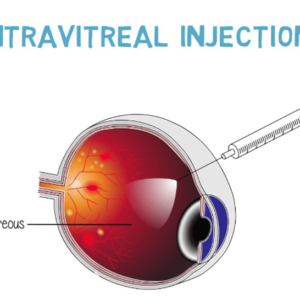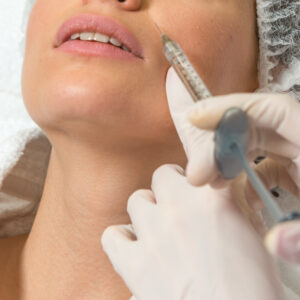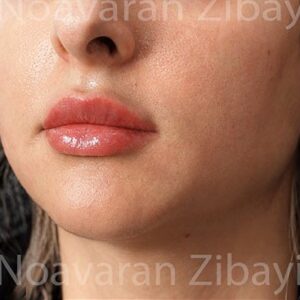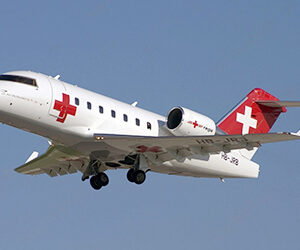From: 30.00$
Embark on a transformative journey with our exceptional range of medical treatments. As a leading medical tour operator, we offer a comprehensive selection of world-class treatments and procedures to address your unique healthcare needs. From advanced surgeries to cutting-edge therapies, our team of experienced professionals is dedicated to providing top-notch care and ensuring your comfort and satisfaction. Discover a new level of healthcare excellence with our tailored treatment options. Book now to start your journey towards a healthier and happier you.
Radiofrequency (RF) skin tightening, also known as radiofrequency therapy, is a non-surgical cosmetic procedure that uses energy waves to heat the deep layer of the skin called the dermis. This heat stimulates the production of collagen, which is a protein that provides structure and firmness to the skin.
Here are some key points about radiofrequency skin tightening:
Collagen Stimulation: As we age, the production of collagen in our body decreases, leading to sagging skin and wrinkles. RF therapy helps to counteract this by stimulating the production of new collagen, which can improve skin tightness and firmness.
Non-Invasive: Radiofrequency skin tightening is a non-surgical procedure, meaning it does not require incisions or anesthesia. It is considered a safe and effective alternative to more invasive treatments like facelifts or surgical skin tightening procedures.
Versatile Treatment: RF skin tightening can be used on various parts of the body, including the face, neck, abdomen, and upper arms. It is commonly used to address concerns such as wrinkles, fine lines, sagging skin, and skin laxity.
Minimal Downtime: One of the advantages of RF skin tightening is that it typically involves minimal downtime. Most individuals can resume their regular activities immediately after the treatment, although some temporary redness or swelling may occur.
Gradual Results: The results of radiofrequency skin tightening are not immediate, as it takes time for the newly stimulated collagen to remodel and tighten the skin. Improvement in skin tightness and texture can be seen gradually over several weeks to months following the treatment.
Safe and Well-Tolerated: RF skin tightening is generally considered safe and well-tolerated. However, as with any cosmetic procedure, there may be some potential side effects or risks, such as temporary redness, swelling, or mild discomfort during the treatment. These effects are typically temporary and resolve on their own.
Radiofrequency (RF) skin tightening treatments are generally considered safe and effective for a wide range of individuals. Here’s a summary of the suitability of RF skin tightening based on the search results:
Age: RF skin tightening can be beneficial for individuals of various age groups. Younger individuals in their 20s may seek RF treatments to address acne scars and improve skin texture. As individuals age, RF treatments can help with skin tightening of the face, jawline, neck, and other areas.
Skin Concerns: RF skin tightening can address various skin concerns, including wrinkles, sagging skin, and skin laxity. It can be effective for improving the appearance of loose skin around the face, neck, belly, upper arms, and other body areas.
Skin Types: RF skin tightening treatments are generally suitable for all skin types, including different ethnicities and skin tones. It is not significantly affected by sun exposure.
Safety: RF skin tightening treatments have been used since 2001 and are considered safe when performed correctly by a qualified practitioner. FDA-cleared technologies are used to ensure controlled and monitored delivery of radiofrequency energy.
Based on the search results, here is the information regarding who may not be suitable for radiofrequency (RF) skin tightening:
Pacemaker or Implantable Cardiac Device: RF energy used in skin tightening treatments can interfere with the functionality of pacemakers or other implantable cardiac devices. Individuals with such devices should not undergo RF skin tightening 1.
Severely Sagging Skin: RF skin tightening may not be as effective for individuals with severely sagging skin. The treatment is generally more effective for those who are just starting to show signs of aging or have mild to moderate skin laxity 2.
Conditions Affecting Skin Healing or Temperature Sensitivity: Individuals with conditions that affect the healing properties or temperature sensitivity of the skin, such as diabetes or multiple sclerosis, should proceed with caution and consult with their doctor before undergoing RF skin tightening 3.
Based on the search results, here are some advantages of radiofrequency (RF) skin tightening:
Non-Surgical: RF skin tightening is a non-surgical procedure, meaning it does not require incisions or anesthesia. This makes it a less invasive option compared to surgical procedures like facelifts, with potentially less downtime and fewer risks.
Collagen Stimulation: RF energy stimulates the production of collagen, a protein that provides structure and firmness to the skin. By promoting collagen production, RF skin tightening can help improve skin elasticity, reduce wrinkles, and enhance overall skin tone and texture.
Versatility: RF skin tightening can be used on various parts of the body, including the face, neck, abdomen, and upper arms. It can address multiple concerns such as sagging skin, wrinkles, and skin laxity in different areas.
Minimal Downtime: RF skin tightening typically involves minimal downtime, allowing individuals to resume their regular activities soon after the treatment. While some temporary redness or swelling may occur, it is generally well-tolerated.
Gradual and Long-Lasting Results: The results of RF skin tightening are gradual and continue to improve over time as collagen production increases. The full effects may be seen several weeks to months after the treatment. The longevity of the results can vary, but maintenance treatments may help prolong the benefits.
Safe and Effective: RF skin tightening is considered safe and effective when performed by a qualified healthcare professional. FDA-cleared technologies are used to ensure controlled and monitored delivery of RF energy.
Based on the search results, the complications of radiofrequency (RF) skin tightening appear to be minimal when the procedure is performed correctly by a qualified practitioner. Here is the information provided in the search results:
Burns: High doses of radiofrequency energy can potentially cause burns. However, when performed correctly with FDA-cleared technologies, RF skin tightening treatments are highly controlled and monitored to ensure that targeted tissues reach the optimal temperature for collagen production and cell regeneration without overheating 1.
Side Effects: Common side effects of RF treatments may include temporary redness, swelling, or mild discomfort during or after the procedure. These effects are generally well-tolerated and resolve on their own.
Contraindications: There are certain contraindications for RF skin tightening, such as individuals with pacemakers or implantable cardiac devices, severely sagging skin, or conditions affecting skin healing or temperature sensitivity. It is important to consult with a healthcare professional or dermatologist to determine if RF skin tightening is suitable for your specific needs 2.
Based on the search results, here is the information regarding preoperative care for radiofrequency (RF) skin tightening:
Consultation: Before undergoing RF skin tightening, it is important to schedule a consultation with a qualified healthcare professional or dermatologist. During this consultation, you can discuss your goals, medical history, and any concerns you may have. The practitioner will assess your suitability for the procedure and provide personalized advice.
Skin Preparation: Your healthcare professional may provide specific instructions for skin preparation before the RF skin tightening procedure. This may include avoiding excessive sun exposure, tanning beds, and certain skincare products in the treatment area.
Medication Review: Inform your healthcare professional about any medications, supplements, or topical products you are currently using. They will advise you on whether any adjustments need to be made prior to the procedure.
Avoid Blood Thinners: It is generally recommended to avoid blood-thinning medications, such as aspirin or nonsteroidal anti-inflammatory drugs (NSAIDs), for a certain period before the procedure. This helps minimize the risk of bruising or bleeding.
Hydration: Maintaining proper hydration is important for overall skin health. Drinking an adequate amount of water before the procedure can help optimize skin condition.
Follow Instructions: Follow any specific instructions provided by your healthcare professional regarding fasting, skincare routine, or other preoperative care measures.
Based on the search results, here is the information regarding postoperative care for radiofrequency (RF) skin tightening:
Follow Aftercare Instructions: It is important to follow the specific aftercare instructions provided by your healthcare professional or dermatologist. These instructions may include guidelines on skincare, avoiding excessive sun exposure, and any restrictions on activities or products.
Protect Your Skin: Protecting your skin from excessive sun exposure is crucial after RF skin tightening. Use broad-spectrum sunscreen with a high SPF to shield your skin from harmful UV rays. Wearing protective clothing and avoiding prolonged sun exposure can also help maintain the results of the treatment.
Avoid Irritants: Avoid using harsh skincare products or treatments that may irritate the treated area. It is recommended to use gentle cleansers and moisturizers to keep the skin hydrated and promote healing.
Stay Hydrated: Drinking an adequate amount of water can help keep your skin hydrated and support the healing process.
Be Patient: The results of RF skin tightening are gradual and may continue to improve over time as collagen production increases. It is important to have realistic expectations and understand that the full effects may take several weeks to months to become apparent.
Follow-up Appointments: Your healthcare professional may schedule follow-up appointments to assess the progress of your treatment and provide additional guidance or recommendations.
Only logged in customers who have purchased this product may leave a review.
Radiofrequency (RF) skin tightening, also known as radiofrequency therapy, is a non-surgical cosmetic procedure that uses energy waves to heat the deep layer of the skin called the dermis. This heat stimulates the production of collagen, which is a protein that provides structure and firmness to the skin.
Here are some key points about radiofrequency skin tightening:
Collagen Stimulation: As we age, the production of collagen in our body decreases, leading to sagging skin and wrinkles. RF therapy helps to counteract this by stimulating the production of new collagen, which can improve skin tightness and firmness.
Non-Invasive: Radiofrequency skin tightening is a non-surgical procedure, meaning it does not require incisions or anesthesia. It is considered a safe and effective alternative to more invasive treatments like facelifts or surgical skin tightening procedures.
Versatile Treatment: RF skin tightening can be used on various parts of the body, including the face, neck, abdomen, and upper arms. It is commonly used to address concerns such as wrinkles, fine lines, sagging skin, and skin laxity.
Minimal Downtime: One of the advantages of RF skin tightening is that it typically involves minimal downtime. Most individuals can resume their regular activities immediately after the treatment, although some temporary redness or swelling may occur.
Gradual Results: The results of radiofrequency skin tightening are not immediate, as it takes time for the newly stimulated collagen to remodel and tighten the skin. Improvement in skin tightness and texture can be seen gradually over several weeks to months following the treatment.
Safe and Well-Tolerated: RF skin tightening is generally considered safe and well-tolerated. However, as with any cosmetic procedure, there may be some potential side effects or risks, such as temporary redness, swelling, or mild discomfort during the treatment. These effects are typically temporary and resolve on their own.
Radiofrequency (RF) skin tightening treatments are generally considered safe and effective for a wide range of individuals. Here’s a summary of the suitability of RF skin tightening based on the search results:
Age: RF skin tightening can be beneficial for individuals of various age groups. Younger individuals in their 20s may seek RF treatments to address acne scars and improve skin texture. As individuals age, RF treatments can help with skin tightening of the face, jawline, neck, and other areas.
Skin Concerns: RF skin tightening can address various skin concerns, including wrinkles, sagging skin, and skin laxity. It can be effective for improving the appearance of loose skin around the face, neck, belly, upper arms, and other body areas.
Skin Types: RF skin tightening treatments are generally suitable for all skin types, including different ethnicities and skin tones. It is not significantly affected by sun exposure.
Safety: RF skin tightening treatments have been used since 2001 and are considered safe when performed correctly by a qualified practitioner. FDA-cleared technologies are used to ensure controlled and monitored delivery of radiofrequency energy.
Based on the search results, here is the information regarding who may not be suitable for radiofrequency (RF) skin tightening:
Pacemaker or Implantable Cardiac Device: RF energy used in skin tightening treatments can interfere with the functionality of pacemakers or other implantable cardiac devices. Individuals with such devices should not undergo RF skin tightening 1.
Severely Sagging Skin: RF skin tightening may not be as effective for individuals with severely sagging skin. The treatment is generally more effective for those who are just starting to show signs of aging or have mild to moderate skin laxity 2.
Conditions Affecting Skin Healing or Temperature Sensitivity: Individuals with conditions that affect the healing properties or temperature sensitivity of the skin, such as diabetes or multiple sclerosis, should proceed with caution and consult with their doctor before undergoing RF skin tightening 3.
Based on the search results, here are some advantages of radiofrequency (RF) skin tightening:
Non-Surgical: RF skin tightening is a non-surgical procedure, meaning it does not require incisions or anesthesia. This makes it a less invasive option compared to surgical procedures like facelifts, with potentially less downtime and fewer risks.
Collagen Stimulation: RF energy stimulates the production of collagen, a protein that provides structure and firmness to the skin. By promoting collagen production, RF skin tightening can help improve skin elasticity, reduce wrinkles, and enhance overall skin tone and texture.
Versatility: RF skin tightening can be used on various parts of the body, including the face, neck, abdomen, and upper arms. It can address multiple concerns such as sagging skin, wrinkles, and skin laxity in different areas.
Minimal Downtime: RF skin tightening typically involves minimal downtime, allowing individuals to resume their regular activities soon after the treatment. While some temporary redness or swelling may occur, it is generally well-tolerated.
Gradual and Long-Lasting Results: The results of RF skin tightening are gradual and continue to improve over time as collagen production increases. The full effects may be seen several weeks to months after the treatment. The longevity of the results can vary, but maintenance treatments may help prolong the benefits.
Safe and Effective: RF skin tightening is considered safe and effective when performed by a qualified healthcare professional. FDA-cleared technologies are used to ensure controlled and monitored delivery of RF energy.
Based on the search results, the complications of radiofrequency (RF) skin tightening appear to be minimal when the procedure is performed correctly by a qualified practitioner. Here is the information provided in the search results:
Burns: High doses of radiofrequency energy can potentially cause burns. However, when performed correctly with FDA-cleared technologies, RF skin tightening treatments are highly controlled and monitored to ensure that targeted tissues reach the optimal temperature for collagen production and cell regeneration without overheating 1.
Side Effects: Common side effects of RF treatments may include temporary redness, swelling, or mild discomfort during or after the procedure. These effects are generally well-tolerated and resolve on their own.
Contraindications: There are certain contraindications for RF skin tightening, such as individuals with pacemakers or implantable cardiac devices, severely sagging skin, or conditions affecting skin healing or temperature sensitivity. It is important to consult with a healthcare professional or dermatologist to determine if RF skin tightening is suitable for your specific needs 2.
Based on the search results, here is the information regarding preoperative care for radiofrequency (RF) skin tightening:
Consultation: Before undergoing RF skin tightening, it is important to schedule a consultation with a qualified healthcare professional or dermatologist. During this consultation, you can discuss your goals, medical history, and any concerns you may have. The practitioner will assess your suitability for the procedure and provide personalized advice.
Skin Preparation: Your healthcare professional may provide specific instructions for skin preparation before the RF skin tightening procedure. This may include avoiding excessive sun exposure, tanning beds, and certain skincare products in the treatment area.
Medication Review: Inform your healthcare professional about any medications, supplements, or topical products you are currently using. They will advise you on whether any adjustments need to be made prior to the procedure.
Avoid Blood Thinners: It is generally recommended to avoid blood-thinning medications, such as aspirin or nonsteroidal anti-inflammatory drugs (NSAIDs), for a certain period before the procedure. This helps minimize the risk of bruising or bleeding.
Hydration: Maintaining proper hydration is important for overall skin health. Drinking an adequate amount of water before the procedure can help optimize skin condition.
Follow Instructions: Follow any specific instructions provided by your healthcare professional regarding fasting, skincare routine, or other preoperative care measures.
Based on the search results, here is the information regarding postoperative care for radiofrequency (RF) skin tightening:
Follow Aftercare Instructions: It is important to follow the specific aftercare instructions provided by your healthcare professional or dermatologist. These instructions may include guidelines on skincare, avoiding excessive sun exposure, and any restrictions on activities or products.
Protect Your Skin: Protecting your skin from excessive sun exposure is crucial after RF skin tightening. Use broad-spectrum sunscreen with a high SPF to shield your skin from harmful UV rays. Wearing protective clothing and avoiding prolonged sun exposure can also help maintain the results of the treatment.
Avoid Irritants: Avoid using harsh skincare products or treatments that may irritate the treated area. It is recommended to use gentle cleansers and moisturizers to keep the skin hydrated and promote healing.
Stay Hydrated: Drinking an adequate amount of water can help keep your skin hydrated and support the healing process.
Be Patient: The results of RF skin tightening are gradual and may continue to improve over time as collagen production increases. It is important to have realistic expectations and understand that the full effects may take several weeks to months to become apparent.
Follow-up Appointments: Your healthcare professional may schedule follow-up appointments to assess the progress of your treatment and provide additional guidance or recommendations.
There are no reviews yet.
Only logged in customers who have purchased this product may leave a review.






Choosing the right hospital and physician are important factors to consider that significantly influence a patient’s treatment. The preferred choice for many patients is choosing private care.
Choosing the right hospital and physician are important factors to consider that significantly influence a patient’s treatment.
Reviews
There are no reviews yet.